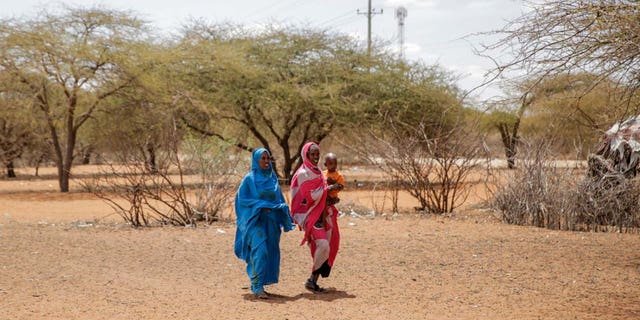US buying Ukraine grain shipments for African regions on brink of starvation, UN says
The United States will buy around 150,000 metric tons of grain from Ukraine in the coming weeks for shipment to people facing starvation and severe drought in the Horn of Africa, officials say.
The grains will be shipped from ports no longer blockaded by the ongoing war, World Food Program chief David Beasley told The Associated Press.
The planned shipment is one of several the U.N. agency that fights hunger is pursuing and is more than six times the amount of grain that the first WFP-arranged ship from Ukraine is now carrying toward the Horn of Africa.
One of the regions withering under a severe drought is northern Kenya. Their bone-dry communities face yet another failed rainy season within weeks that could tip parts of the region, especially neighboring Somalia, into famine. Thousands of people have died and some 22 million people are hungry, according estimates from the World Food Program.
INTERNATIONAL FOOD CRISIS STEMMING FROM UKRAINE WAR HAS NO QUICK FIXES, EXPERTS SAY
Beasley said there was a “high probability” of WFP declaring a famine in the coming weeks. He called the situation facing the region a “perfect storm on top of a perfect storm as the drought-prone region struggles to cope amid high food and fuel prices driven partly by the war in Ukraine.
The first aid ship from Ukraine is carrying 23,000 metric tons of grain, enough to feed 1.5 million people on full rations for a month, Beasley said. It is expected to dock in Djibouti later this week, and the wheat is supposed to be shipped overland to northern Ethiopia, where millions of people in the Tigray, Afar and Amhara regions have faced not only drought but deadly conflict.

Ukraine was the source of half the grain that WFP bought last year to feed 130 million hungry people. Russia and Ukraine signed agreements with the U.N. and the Turkish government last month to enable exports of Ukrainian grain for the first time since Russia’s invasion in late February.
But the slow reopening of Ukraine’s ports and the cautious movement of cargo ships across the mined Black Sea won’t solve the global food security crisis, Beasley said. He urged richer countries, including the Gulf States, and China, to do more to help.
Despite grain leaving Ukraine and hopes rising of global markets beginning to stabilize, the world’s most vulnerable people face a long, difficult recovery, the WFP chief said.
Beasley predicted that even if the drought were to end, the global food crisis could last, at least, another 12 months – perhaps several more years for the poorest of the poor.
The Associated Press contributed to this report.
Read the full article Here


